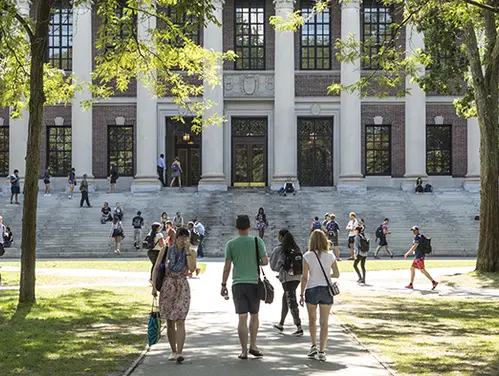Types of Colleges
Public Universities
- Four-year and advanced degrees
- Iowa has three: University of Iowa, Iowa State University, University of Northern Iowa
- Also called Regent Universities
- Funded by the state
- Lower tuition and fees than private institutions
Private, Not-for-Profit Institutions
- Often smaller, with lower student-to-faculty ratios
- Four-year and advanced degrees
- No direct state funding, usually more expensive
- Higher cost offset by grants and scholarships from endowments, in addition to federal and state aid
Private, For-Profit Institutions
- Two-year, four-year and advanced degrees
- Also called proprietary
- Privately owned and operated to generate profit
- Often offer technical and pre-professional programs
Community Colleges
- Two-year degrees, diploma, vocational certificates, transfers to four-year institutions
- Iowa has 15 community college districts
- Lower tuition and fees than four-year institutions
- Open admission—only requirement is high school or equivalency diploma
- Funded by the state
Vocational & Technical Schools
- Public or private
- Many are for-profit
- Prepare for a specific occupation or trade
- Examples: IT, cosmetology, auto repair, paralegal
Types of Degrees
Registered Apprenticeships
- Provide 2,000 hours of on-the-job learning and at least 144 hours of related instruction
- Most employers cover the cost of classroom education, and you earn a paycheck while you learn
- Examples: Construction, plumbing, electrical, financial services, health care, advanced manufacturing, food and beverage prep
- More information at earnandlearniowa.gov
Certificates & Diplomas
- Particular skills for specific careers
- Certificates generally take a year or less
- Diplomas generally take two years or less
- Community colleges, career/vocational/technical colleges or some four-year colleges
- Examples: Paralegal, cosmetologist, welder, chef, certified nursing assistant
Associate Degrees
- Usually earned in two years (sometimes less) at a community college or some career/technical/business colleges and four-year colleges
- Some can be applied toward a bachelor’s degree at a four-year college or university
- Examples: Dental hygienist, registered nurse, veterinary tech, auto mechanic
Bachelor’s Degrees
- Typically take at least four years at any four-year college or university
- Examples: Teacher, engineer, accountant, dietitian, social worker, criminal justice
Advanced Degrees
- After bachelor’s degree
- Master's, doctoral or professional
- Can take several years, depending on the type
- Examples: Dentist, lawyer, veterinarian, college professor, medical doctor
